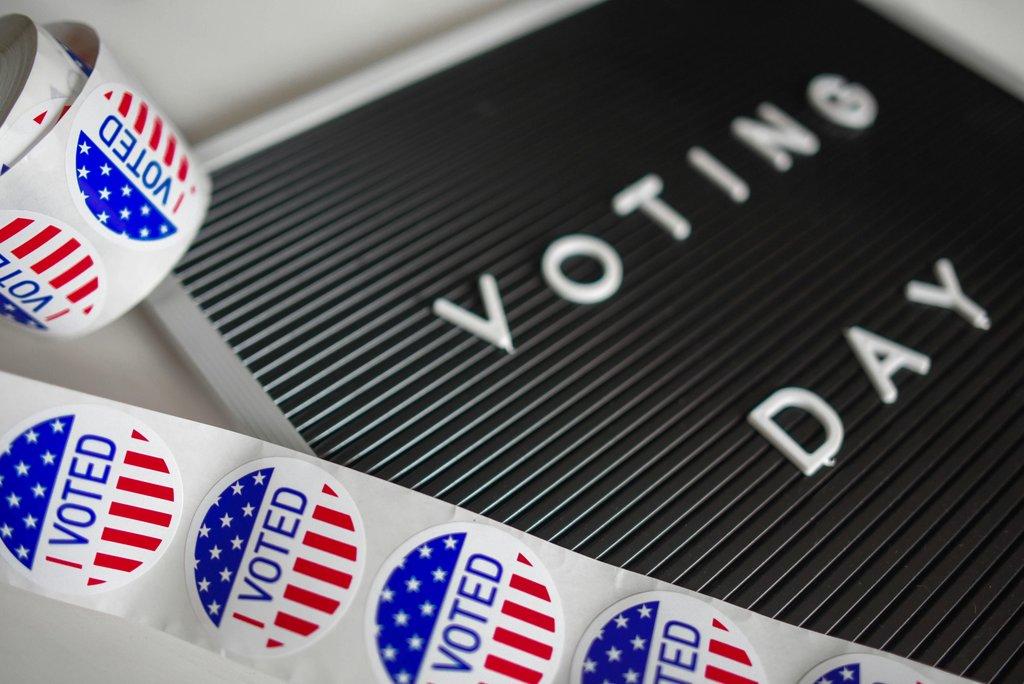
Get insights on market impacts from U.S. elections, Boeing's strike resolution, Palantir's growth, ADM's challenges, and European banks' CRE risks.
S&P 500 Futures & Election Influence
As the U.S. heads to the polls, S&P 500 futures showed a slight increase, signaling anticipation for potential market impacts depending on the election outcome. The race between Republican Donald Trump and Democrat Kamala Harris has significant implications for future fiscal policies, international trade, and economic regulation. Markets will likely reflect immediate sentiment shifts as results are tallied. Investors have strategized in various ways, from backing the dollar to purchasing stocks that might benefit from Trump's more aggressive fiscal approach or Harris's alternative policies.
Currency Market Movements
Hedge funds have turned their attention to the euro and Australian dollar, buying call options in anticipation that a Harris win could weaken the U.S. dollar. This speculative move reflects expectations of differing economic policies between the candidates, influencing currency strength and international relations.
Bitcoin ETF Outflows
In preparation for possible election-related market swings, Bitcoin ETFs saw record outflows of nearly $600 million. Investors appear cautious, seeking to minimize exposure to potential volatility. This withdrawal highlights concerns about sudden shifts in digital asset markets following election outcomes, where policy changes could impact regulations affecting cryptocurrencies.
Boeing Strike Resolution
Boeing workers approved a new labor agreement, ending a 53-day strike that had disrupted production of key aircraft models. The accepted contract includes a 38% wage increase over four years and a $12,000 ratification bonus per worker, which eases tensions and resumes operations. This strike, the first in 16 years, had cost Boeing approximately $100 million per day. While the end of the strike is positive for the aerospace sector, production levels for the 737 MAX are expected to remain low until 2026. Analysts predict the deal will add over $1 billion to Boeing’s expenses but will help repair strained worker relations.
Palantir's Stock Surge
Palantir Technologies' shares jumped 12% after announcing record profits, fueled by surging demand for its AI-powered software. This tech company has already gained over 140% this year, showcasing continued investor interest in AI-driven solutions. Its inclusion in the S&P 500 has further cemented its status as a major player in the technology sector. Palantir's growth highlights a persistent enthusiasm for AI investments as they reshape business strategies and market expectations.
ADM’s Financial Troubles
Archer-Daniels-Midland (ADM) announced plans to amend past financial statements due to additional accounting errors. This development follows an earlier scandal that eroded over $8 billion of its market value and triggered government investigations. ADM's adjusted statements will span its Ag Services, Oilseeds, Carbohydrate Solutions, and Nutrition segments. The company has lowered its 2024 profit forecast, citing operational issues and market demand challenges, leading to a 6.8% drop in share price in pre-market trading. This episode underscores the volatility in the agribusiness sector and the risks of rapid expansion through acquisitions that may fail to deliver expected returns.
European Banks' CRE Challenges
A study by the European Central Bank (ECB) revealed that commercial real estate (CRE) loans, totaling approximately €1.3 trillion, are deteriorating in quality, impacting smaller, specialized banks more severely. The ECB noted rising non-performing loans and underlined that past failures to accurately assess collateral values had exacerbated risks. Although not a systemic threat, the report indicated that banks could face considerable losses, particularly with unsecured loans to real estate investment funds (REIFs). These funds have struggled with asset sales, worsening exposure to the commercial property sector that has yet to recover from the pandemic downturn.
Author's Analysis
Today's developments highlight a volatile global financial environment influenced by political events, labor disputes, and sector-specific troubles:
- Election Impact: Investors should be prepared for market fluctuations as election results come in, potentially affecting currency valuations, stocks, and broader economic strategies.
- Labor Resolutions: Boeing's agreement is a temporary fix, indicating that even large firms must carefully manage labor relations to avoid long-term production setbacks.
- Tech Strength: Palantir's success reinforces the momentum of the AI sector as a key driver for stock growth.
- Financial Red Flags: ADM's restatements remind investors of the importance of transparent reporting and due diligence, particularly in conglomerates expanding beyond their core competencies.
- CRE Market Woes: The ECB's findings serve as a cautionary tale about sector-specific risks and their potential to impact the banking system.
Investor Takeaway: Diversification remains essential, with attention to geopolitical events, strong corporate governance, and emerging tech trends offering opportunities amid economic uncertainties.
Note: If you're wondering how to protect and grow your wealth in this economic climate, subscribe to the Estimatedstocks Model Portfolio for free to get market-beating stock picks.
Disclaimer:
The information provided in this article is for educational purposes only and should not be construed as investment advice. estima...
Author
Shaik K is an expert in financial markets, a seasoned trader, and investor with over two decades of experience. As the CEO of a leading fintech company, he has a proven track record in financial products research and developing technology-driven solutions. His extensive knowledge of market dynamics and innovative strategies positions him at the forefront of the fintech industry, driving growth and innovation in financial services.


